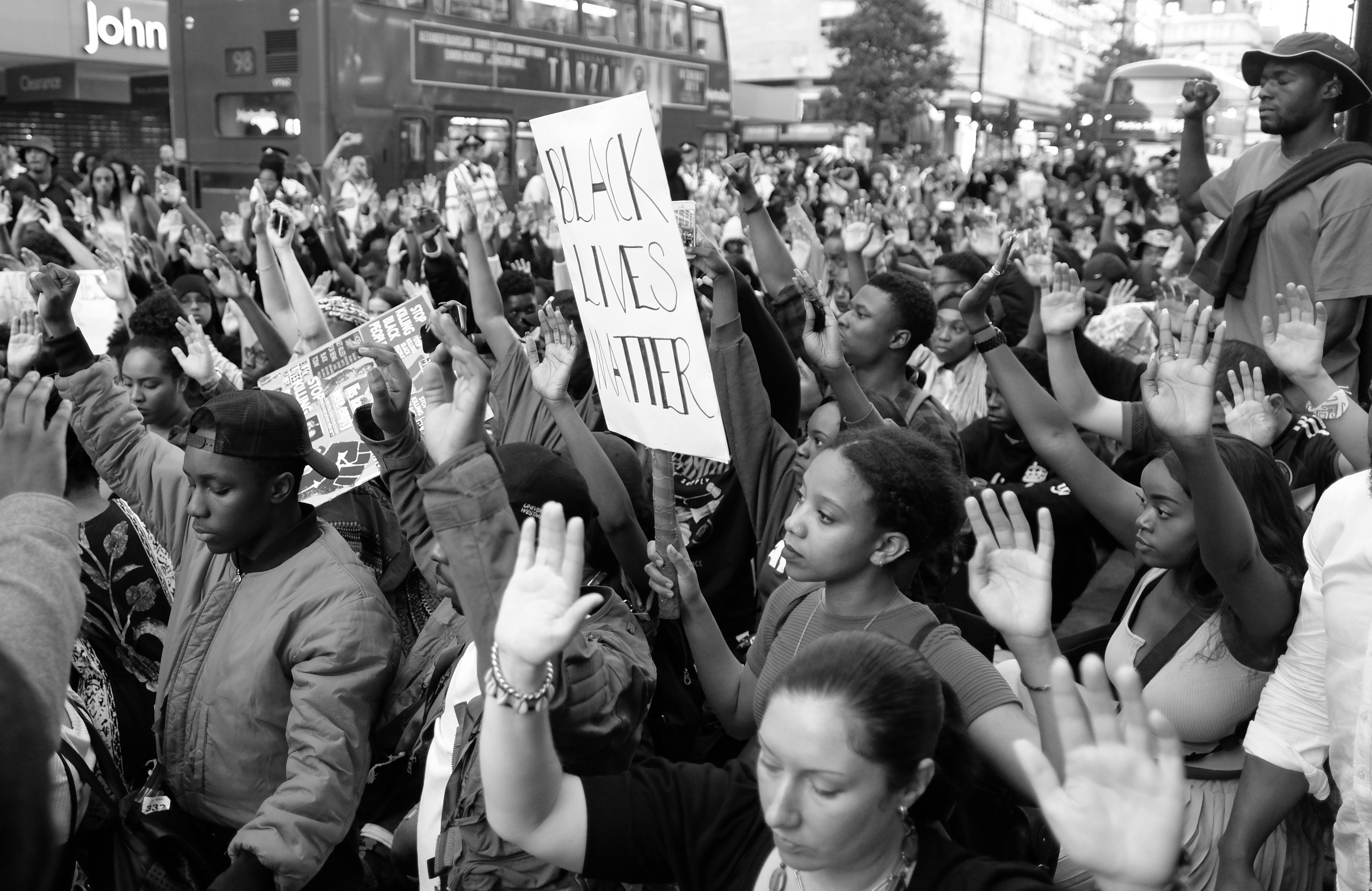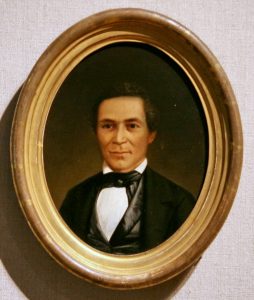The Radical Tradition of Student Protest

On the night of August 20, 2018, student protesters at the University of North Carolina at Chapel Hill toppled a statue memorializing the Confederacy. That such monuments can be found at universities should come as no surprise, as many of the oldest universities in the United States, including UNC Chapel Hill, financially benefited from the political economy of Atlantic slavery and the labor of enslaved people. The erection of Silent Sam in 1913 marked a continuation of slavery’s legacies at Chapel Hill. The act of toppling the statue that night in August, however, was a protest against anti-Black racism on campus. In doing so, student protesters challenged the historical legacies of slavery and racism on campus. Their actions mark the latest contributions of students in the long history of the Black freedom struggle.
The history of student activism for Black freedom and equality can be traced back to the nineteenth century. One example is that of John Brown Russwurm. Born in Jamaica in 1799 to a non-slaveholding white father and a Black mother, Russwurm moved to Montreal at a young age for schooling. His early education included a stint at a private academy in Maine where he became interested in pursuing a college education. Unable to afford it, Russwurm took up teaching in free African Schools in Philadelphia, New York City, and then in Boston where he spent most of his early teaching career. In the Massachusetts capital, he became acquaintances with leading Black men such as Prince Saunders, Thomas Paul Sr., Primus Hall, and David Walker. Through these relationships, historian Winston James argues, Russwurm developed a fascination with the Haitian Revolution and Black emigrationist plans to Haiti. After saving enough money to pay for his schooling, Russwurm was admitted to Bowdoin College in the fall of 1824 with junior status, a testament to his intellectual prowess and the education he had received. Russwurm progressed through the college course, but his greatest moment as a student came at his commencement.
Russwurm participated in the commencement exercises in 1826 and gave an oration entitled, “On the Condition and Prospects of Hayti.” His address was a forceful argument vindicating the Haitian Revolution as an example of Black people asserting their natural rights and establishing a republican government. He played on the wording of the Declaration of Independence, “It is in irresistible course of events that all men, who have been deprived of their liberty, shall recover this previous portion of their indefensible inheritance.” He continued, “it is in vain to stem the current; degraded man will rise in his native majesty, and claim his rights.” Russwurm used the example of Haiti as proof that white attempts to deprive Black people of liberty would ultimately be futile. “Such were its effects upon the Haytiens,” he observed, who had been enslaved, but “when Freedom struck their astonished ears, they became new creatures: stepped forth as men, and showed to the world, that though Slavery may benumb, it cannot entirely destroy our faculties.” Russwurm supported the slave rebellion in Saint Domingue as enslaved people struck for their natural rights and reclaimed their freedom. He goes on to argue that the republican government created by Black people was equal to any in the Atlantic World. The remainder of the address looked favorably to Haiti’s future as a beacon of Black freedom and equality.1

Russwurm’s commencement address is an example of radical student protest. In lauding the actions of enslaved people striking for their freedom, he challenged supposed notions of Black inferiority and praised the outcome of the Haitian Revolution: the abolition of slavery and the establishment of the first Black republic in the western hemisphere. In lauding the actions of enslaved people in the revolution, Russwurm aligned with other abolitionists who looked to the example of the Haitian Revolution, rather than the American one, as the true manifestation of the principles of liberty and equality. As a student, Russwurm provided an abolitionist critique of the United States as a slaveholding republic. Indeed, Russwurm himself was the embodiment of Black equality, specifically Black intellectual equality as he graduated with a college degree alongside white students. Additionally, his address was an important step in his evolution as a Pan-Africanist thinker. As a student, Russwurm was a revolutionary figure and after his time at Bowdoin he became a prominent Black leader. Not only was he one of the first Black persons to gain a college degree in the U.S., but he also became an important abolitionist and an editor of Freedom’s Journal, the first Black owned and operated newspaper in the U.S. While subsequent developments in his life led him to work under the auspices of the American Colonization Society, he maintained a vision of supporting Black rights as an important political leader in Liberia. His commencement oration marks a significant moment in the history of Black student activism.
The student protests against anti-black racism at UNC Chapel Hill are part of a long history of student protest against racism that includes individuals like John Brown Russwurm. The ties of universities to racism and other systems of oppression continue to resonate in scholarship and current struggles for justice and equity in higher education today. The history of student protest underscores how long the struggle has been in attempting to create meaningful change in society. Black, brown, and white students will continue their activism in this radical tradition and will draw on its history. University administrators would do well to heed their demands and follow their lead.
*This piece grew out of a workshop on blogging organized by graduate students in the W.E.B. Du Bois Department of Afro-American Studies at UMass who met with editors of Black Perspectives to craft these pieces.
- John Brown Russwurm, “The Condition and Prospects of Hayti,” printed in James, The Struggles of John Brown Russwurm, 132-34, quoted on 132. ↩

Bravo, Mike! Great to see your piece here.